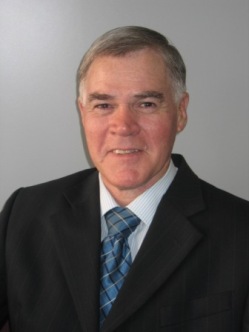While government officials and police have been quick to praise the initial success of Drink Safe Precincts (DSPs), hoteliers and publicans believe some fine-tuning is necessary.
TheShout put three questions to Queensland Hotels Association (QHA) CEO, Justin O’Connor, to gauge his views on how the increased police and Office of Liquor, Gaming and Racing presence had impacted on venues.
Q. Brisbane’s Fortitude Valley and the Townsville CBD have been subjected to extra police patrols, street checks and the establishment of ‘safe zones’ over the past three months. Have the DSPs been a success?
In general terms, the Qld hotel industry supports the Drink Safe Precinct approach on the basis that it represents targeted measures to address identified geographic areas where there is a relatively high level of anti-social and criminal conduct resulting in part from the mis-use of drugs and alcohol, and a high level of ‘incidents’ which are directly related to the very high number of patrons who visit these areas.
In the case of central Surfers Paradise and Fortitude Valley, they both contain very high levels of liquor licensed businesses, they both contain a high level of late night ‘nightclub’ businesses, and they both enjoy very high levels of patronage from a younger demographic – 18 to 24 age group.
We are supporting the DSP approach wherein young patrons are drawn to these locales, and relatively scarce public resources such as police officers, ambulance and fist aid staff, drug counselors and medics, and other volunteer support services such as chaplains are able to focus their efforts to best effect.
Q. Are you convinced that licensee feedback is being actively sought and taken into account by government officials and police?
The DSP committees have generally been built on the foundations of the (pre) existing Liquor Accord Groups or committees in the three areas. Accordingly, the DSP process represents an evolutionary improvement over existing local arrangements for crowd and issue management.
There was some initial frustration from licensees about potentially ‘re-inventing the wheel’ but this has dissipated as time and improved cooperation and liaison has ensued.
Licensees and patrons are very pleased with the improved numbers, presence and effectiveness of police operations. The liquor industry has consistently supported a greater police presence in and near entertainment precincts as there is no greater deterrent to anti-social activity than a blue uniform.
Not surprisingly, the advent of higher and more aggressive levels of police presence has had a direct impact in the DSP areas of reducing general and alcohol and drug related anti-social activity.
In summary, it is early days, but the licensed community is cautiously optimistic about the level of cooperation and the overall outcome of DSP planning and activity, but especially the increased and more focused police interventions.
Q. What, if any, changes would you like to see in the Government / Police approach?
There needs to be improved identification of repeat offenders, and more careful and thoughtful follow-up by the justice system.
Police, licensees and members of the public are increasingly frustrated that repeat and violent offenders are not being properly held to account for their actions.
To date, following new regulations in Queensland, seven people have received court-ordered banning orders, with some 20 more in the pipeline.
We need to consistently and forcefully reinforce the message that individuals who fail to meet the community’s standard of behaviour in entertainment venues will be identified and excluded from those venues if they visit violent or repeat anti-social acts on other patrons.
Naturally, we would like to see ongoing consultation, such that the improved industry, police and support services effort is correctly targeted towards those geographic areas where the need is greatest.
For example, an additional 90 police officers are rostered on for the annual ‘schoolies’ event on the Gold Coast, but none are generally allocated for one-off events such as rave and dance parties – this might be fine-tuned over time.
To comment, click here.

